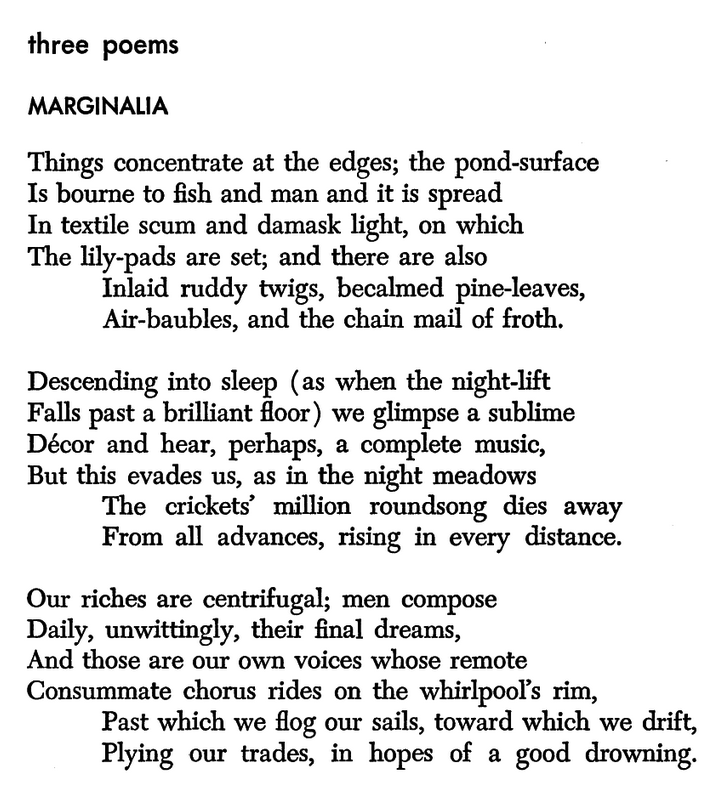
and thought of Betsy's marvelous photograph, which graces John and Wende's entryway:

❧ ❧ ❧ ❧ ❧
None of the poems in The Universe in Verse mentions Chaos, and I wondered what Popova's The Marginalian had to say on the subject. A marvelous cascade of posts ensued. Further digging found more:
The Pattern Inside the Pattern: Fractals, the Hidden Order Beneath Chaos, and the Story of the Refugee Who Revolutionized the Mathematics of RealityDenise Levertov on Making Art Amid Chaos and the Artist's Task to Awaken Society's Sleepers
Our Need for Each Other and Our Need for Our Selves: Muriel Rukeyser on Our Source of Strength in Times of Turmoil
From Stardust to Sapiens: A Stunning Serenade to Our Cosmic Origins and Our Ongoing Self-Creation
I also happened upon a gallery of Maria Popova's postings on the several iterations of The Universe in Verse as a public event, where you can savor readings by various participants (Amanda Palmer, Patti Smith, David Byrne, Elizabeth Gilbert, Krista Tippett...) and art work chosen by Popova herself. What an education awaits us all.
I also (while thinking about 'Marginalia' as Popova's chosen title) encountered Richard Wilbur's 'Marginalia':

and thought of Betsy's marvelous photograph, which graces John and Wende's entryway:

❧ ❧ ❧ ❧ ❧
But this started out to be about Chaos, and poems that might illuminate and elucidate. This fell out of my pen this morning:
We aspire to ordered lives,("If gods there be" shows up in Aeschylus' The Seven Against Thebes)
to predictability, and to objectives thought and met.
To should and will as the normal order of things.We are surprised and discomfited when the gods (if gods there be)
present us with the quotidian reality of the chaotic,
seemingly out of nowhere and heedless of our wishes.
We wonder if they wish us ill,
or just enjoy the sport of messing with our minds
and our puny desires.Or if perhaps there are no gods, but only the stochastic, the random,
the alea which iacta est, the tickings of the quantum.
And what then? Is nobody responsible for our fates but chance and our poor selves?
What of the Endless, of Destiny and Dream and Desire and Despair,
of Delirium (formerly Delight) and Destruction and Death?
Is all our Imagination?
I can't resist adding this, from a review of Gleick's Chaos (1988, London Review of Books):
...James Gleick's Chaos tells an exhilarating tale. It starts a quarter of a century ago with work on weather forecasting by Edward Lorenz and finishes with an account of the penetration of 'chaos' research into sciences as different as epidemiology and astronomy. Science has traditionally turned a blind eye when a graph fluttered unmanageably and thus the future could not be plotted on a straight line or a smooth curve. It is such nonlinear phenomena which chaos research investigates.'Chaos', as it is used in this context, is confusing. It is not, for instance, a synonym for 'random'. Weather is chaotic: you never know exactly when the next cyclone will come across the Atlantic — but it is not random. The behaviour of warm damp air, on any scale from a cupful to a cyclone, follows the general laws of expansion, contraction and movement which apply in more predictable systems. In terms of averages and general patterns, it is stable and describable. Science up to now has looked to deal with phenomena which settle to regular patterns. It has assumed that in chaotic systems like the weather the problem was a scarcity of data, a confusion of superimposed patterns and rhythms, all interacting with each other. If only you could get all the detail right, the rest would look after itself. How can a process be both part of a world which obeys physical laws and also impossible to predict in principle?
I'm reminded that my dear and very recently Departed friend Ron Nigh read Chaos when it first came out, and then photocopied the whole book and mailed it to me, saying that he thought it one of the most important books to cross his path in years.